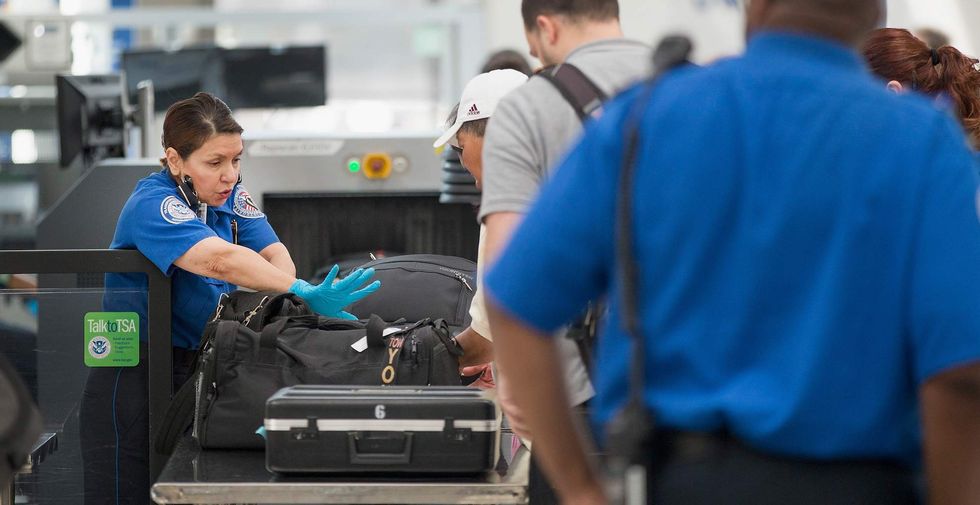First, the Transportation Security Administration banned laptops on certain flights, and now the agency has set its sights on books.
The TSA has recently been testing a new bag-check system that allows agents to search passengers’ books, The Week reported earlier this month. The new system requires travelers to place all their reading materials into an open bin for scanning.
So far, the practice, which is still being tested, has only been implemented in Detroit, Phoenix, and Boston.
While officials with the TSA have said agents are dispassionate about the contents of the books, they may flip through the reading materials to ensure nothing is secretly stashed between the pages. The technique is being implemented because tightly packed luggage is difficult to see through.
Nevertheless, many see the new policy as overly intrusive and as an invasion of privacy. In fact, Jay Stanley, a senior policy analyst for the left-leaning American Civil Liberties Union, is contesting the TSA bag-check system.
He wrote about the controversial technique in a blog post published Friday on the ACLU’s website:
A person who is reading a book entitled “Overcoming Sexual Abuse” or “Overcoming Sexual Dysfunction” is not likely to want to plop that volume down on the conveyor belt for all to see. Even someone reading a bestseller like “50 Shades of Grey” or a mild self-help book with a title such as “What Should I Do With My Life?” might be shy about exposing his or her reading habits. And of course someone reading Arab or Muslim literature in today’s environment has all too much cause to worry about discrimination.
Stanley pointed to a 2010 case the ACLU handled in which a college student named Nicholas George was detained over Arabic flash cards he had that included the word “bomb.” Ultimately, George was awarded a $25,000 settlement from the Justice Department in 2015.
“Is this really the image of our country that we want to project to visitors?” Paul Constant, co-founder of the Seattle Review of Books, wrote last month. “Welcome to America — now let us probe every single page of your reading material?”
Academics, according to Inside Higher Ed, are concerned about what implications the new policy could have for educators.
Henry Reichman, professor emeritus of history at California State University at East Bay and chair of the American Association of University Professors’ Committee A on Academic Freedom and Tenure, told the outlet that such a screening technique could be very problematic for professors.
“Academics are unsurprisingly big readers, and since we don’t simply read for pleasure, we often read materials with which we disagree or which may be seen by others as offensive,” he said. “For instance, a scholar studying terrorism and its roots may well be reading — and potentially carrying on a plane — books that others might see as endorsing terrorism.”
“In addition,” he continued, “because scholarship is international, I suspect academics are more likely than others to be reading and carrying material in foreign languages, which might arouse some suspicion.”
In late May, Darby LaJoye, assistant administrator for TSA security operations, sought to quell the concerns of travelers who object to the invasive book-searching practice. He told the Wall Street Journal that changes have been on the way for the past 18 months.
“It is not any one particular item we’re worried about. It’s not about paper or food or anything,” LaJoye said. “It’s how best to divest those items.”



